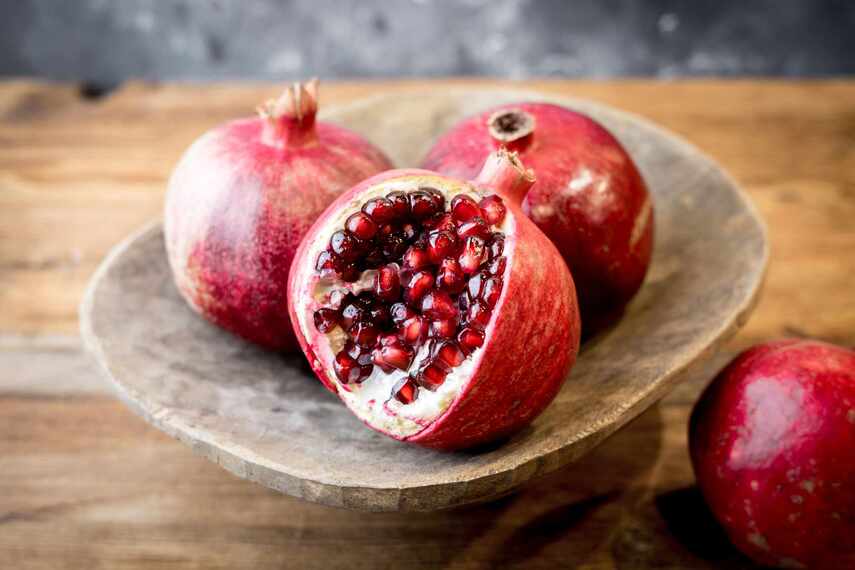Pomegranate

Pomegranate (Punica granatum) is a fruit-bearing deciduous shrub or small tree growing to between 5 and 8 m (16–26 ft) tall. In the Northern Hemisphere, the fruiting takes place typically in the season from September to February and in the Southern Hemisphere from March to May.
Pomegranates have polyphenol compounds called punicalagins or ellagitannins. These antioxidants help prevent your artery walls from thickening and reduce the buildup of cholesterol and plaque. Pomegranate juice also has high amounts of plant pigments called anthocyanins and anthoxanthins, which support heart health.
pomegranate, (Punica granatum), bush or small tree of the family Lythraceae and its fruit. The juicy arils of the fruit are eaten fresh, and the juice is the source of grenadine syrup, used in flavourings and liqueurs. Pomegranate is high in dietary fibre, folic acid, vitamin C, and vitamin K.
Send An Enquiry